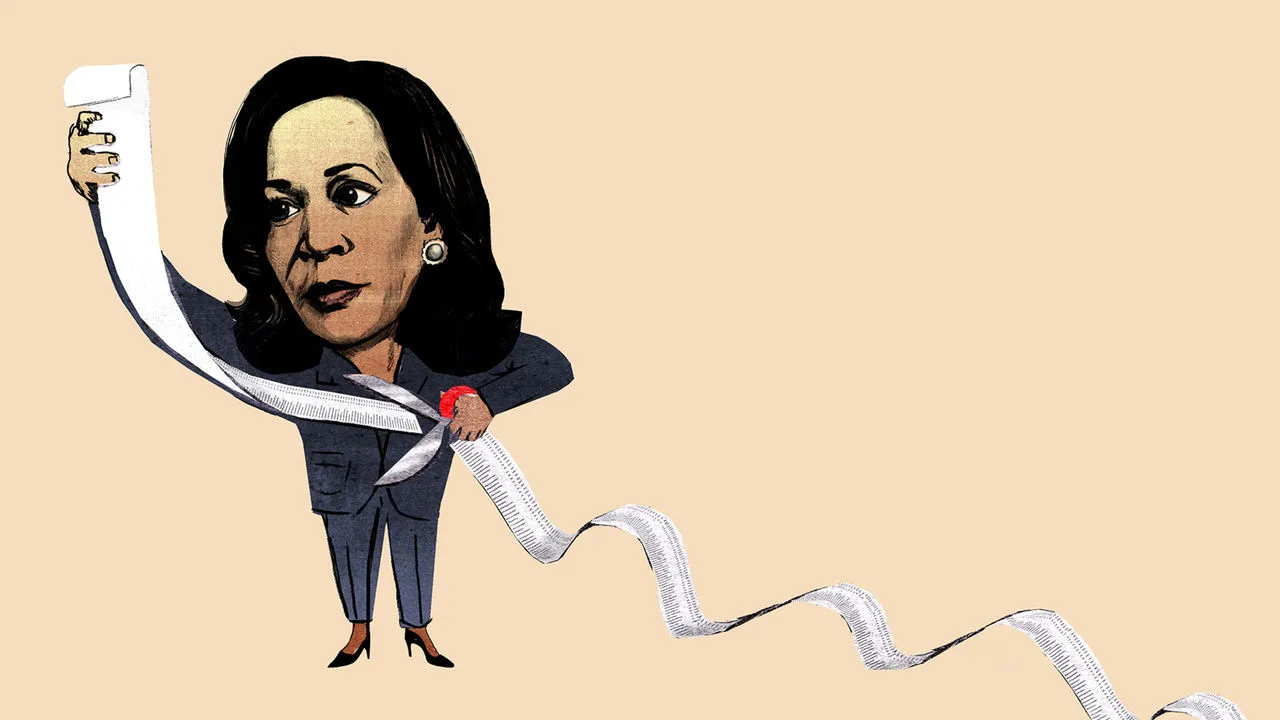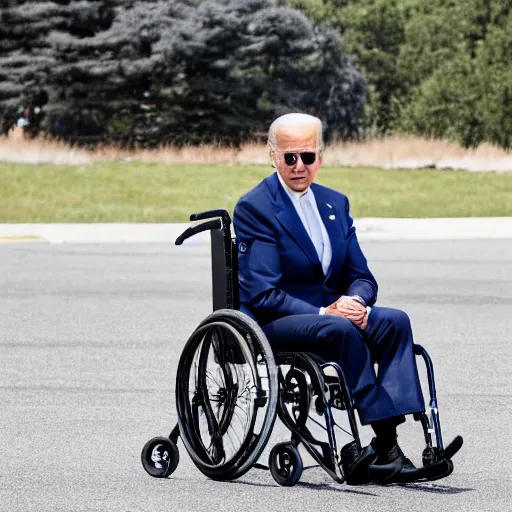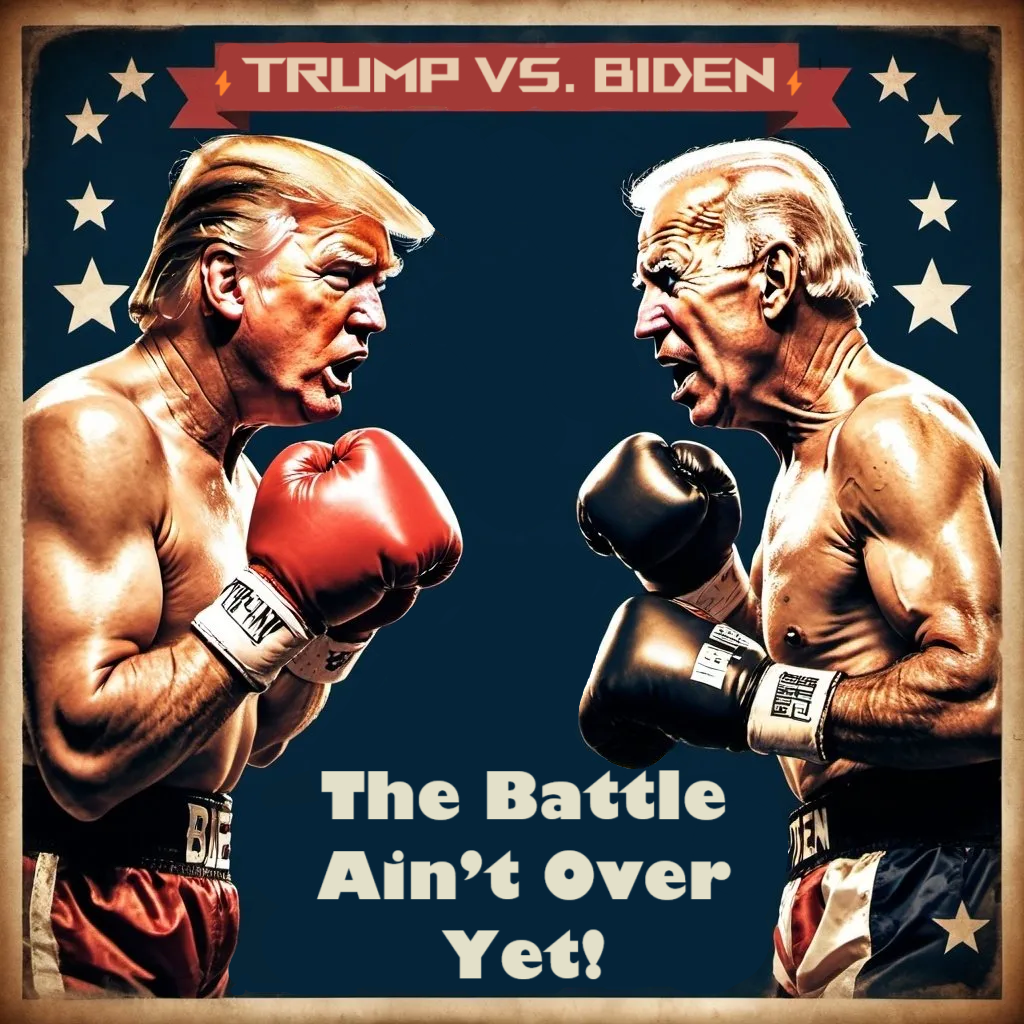As we edge closer to the 2024 election, Kamala Harris’s economic policies—now being dubbed “KamalaNomics”—are under fire. While Harris presents herself as a champion of the working class, many Americans see her policies differently: high taxes, runaway inflation, and government spending that could line the pockets of global elites instead of helping everyday citizens. Is she truly building a better America, or is this all part of a greater agenda?
Higher Taxes, Lower Take-Home Pay: Who Benefits?
Harris has been clear about her intention to reverse Trump’s tax cuts, pushing a corporate tax hike that could weigh heavily on small businesses and hard-working families. Raising corporate taxes back to 28% may sound like it’s targeting the ultra-wealthy, but who ends up paying the price? Families facing inflation and higher costs at the grocery store. And some say this tax increase is exactly what the global elite and organizations like the WEF support—more government control, less financial freedom for Americans.
Housing Solutions? Or Just More Power for the Elites?
Harris’s solution to affordable housing isn’t as simple as it seems. Critics argue that her plans to pour billions into government housing programs will only expand federal control over everyday Americans’ lives. The WEF, championing ideas like “You will own nothing and be happy,” seems to align eerily well with the policies of KamalaNomics. If the government controls housing, who really owns your home?
Grocery Price Controls: Help for the People or Another Power Grab?
Harris’s call for grocery price controls to “combat inflation” sounds like a promise to help families. But experts warn that such controls could lead to shortages, hurting small businesses and allowing big corporations to monopolize essential goods. Conspiracy theories circulating online suggest that price controls are less about relief and more about creating scarcity to centralize power in the hands of a few elites. When grocery shelves empty out, who’s left standing? Likely not the average family, but rather those who benefit from Harris’s connections and influence.
Child Tax Credit Expansion: Debt and Dependency for Votes?
Kamala Harris’s push to expand the child tax credit has received support from some corners, but critics argue it’s part of a larger pattern to increase dependency on government handouts. By adding billions to the national debt without a sustainable plan, KamalaNomics could be paving the way for future generations weighed down by government debt. Online theories argue that elites favor policies like these—they foster dependency, keep power concentrated at the top, and could make it easier for influential global organizations to impose their agendas.
Are the Elites Pulling the Strings of KamalaNomics?
Is KamalaNomics really about helping Americans, or is it another step toward giving power to a small circle of elites? From higher taxes to massive spending packages, Harris’s policies mirror the interests of globalist agendas and organizations like the WEF. By pushing Americans into dependency, KamalaNomics may be more about control than care.
The Bottom Line: KamalaNomics—Who Does It Really Serve?
As the election approaches, more Americans are questioning if KamalaNomics is setting us up for success or leaving us at the mercy of the powerful elite. While Harris presents herself as a voice for the people, her economic track record and alliances hint otherwise. From higher taxes and burdensome policies to an eerie alignment with the WEF, KamalaNomics may be serving a much different agenda than she claims.
The stakes for 2024 couldn’t be higher. It’s not just about the economy—it’s about who really controls our country’s future. America deserves leaders who prioritize economic freedom and independence, not policies that push us closer to elite control.






